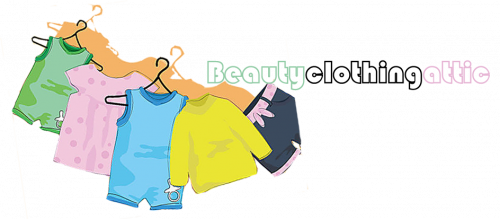
Coats is the world’s largest industrial thread manufacturer. For over 250 years, Coats has been creating value added products and solutions to meet its customers’ changing needs.
Thanks to its unrivalled global footprint which allows Coats to meet the customers’ sourcing needs consistently and quickly across multiple locations through its portfolio of world-class products and services, the company is today the trusted value-adding partner, providing critical supply chain components and services to the US $ 1.8 trillion (pre-Covid) global Apparel and Footwear industry.
In a candid discussion with Apparel Resources , Nishant Manuja, Managing Director, Coats Bangladesh Ltd. , discusses a host of issues including changing market dynamics, importance of sustainability, Covid challenges and how the more than two centuries old company is evolving in these trying times to not only survive and sustain, rather keep ahead of the challenges, while also efficiently cater to the all-round needs and requirements of the customers. Here are the excerpts.
AR: Major takeaways and learnings from the last one year, both in terms of business and customer behaviour…
Nishant Manuja: For some time, the major challenges for our industry have been to improve speed, lower cost, become more innovative and transparent, connect digitally and become more responsive to customers’ needs. What has happened over the last year is that Coronavirus has acted as an accelerant; these challenges are all still here but all need to be responded to, at more intense levels.
It has also taught the importance of two more challenges, namely agility and resilience. One of the reasons Coats was able to navigate the Covid storm was because our operating footprint and flexible supply chain enabled manufacturing to be moved across our network.
The pandemic has had an immeasurable impact on mental health and well-being. Companies with a strong sense of purpose and ethics have stepped up their responsibility to address the pastoral care of their employees – both physically and mentally.
When you look at the companies emerging most strongly from last year, it is the ones that have been able to recalibrate their playbook to pivot to a post-Covid operating model that is underpinned by technology, digital, ESG and customer centricity.
AR: How would you define the term ‘New Normal’; is there actually a new normal or is it more of a hype than reality?
Nishant Manuja: In one sense, the new normal is that there is no normal. For instance, as some parts of the world emerge from the pandemic and local restrictions are lifted, other regions are facing increases in Coronavirus cases.
The normal now is uncertainty and unpredictability; so, businesses need to be ready to pivot quickly to adapt and be able to flex and fit as different challenges arise.
AR: What are the major developments that will impact your business in the next few months/years?
Nishant Manuja: Our strategic pillars are digital, innovation and sustainability. They give us a competitive advantage; so they underpin our strategy to develop our business.
Covid has highlighted the critical need for digital adoption in our industry. At Coats we continue to develop customer-facing tools along with a fully-integrated and global ERP environment.
Efficiency and agility will come through digital transformation, so we see extensive digitisation of the supply chain over the next few years.
End consumers are demanding more innovative products in every area of their lives, so we continue to create innovative new solutions to support our customers; that can be smart thread and yarns to enhance the functionality or performance of products in multiple-end use markets.
Besides, sustainability has long been at the core of how we do business and is a key driver of our strategic decisions. It not only gives us a competitive advantage but also allows us to help our customers with their own sustainability agendas.
Sustainability and ESG have moved even further up the agenda for consumers and brands and this has made them a priority for the entire supply chain. Again, Coats is well positioned to verifiably demonstrate them and we have them deeply embedded in our organisation.
So, while 2021 will continue to be economically challenging for our industry, it will create opportunities for many companies that have a focus on supply chain efficiency, resilience, transparency, ESG, innovation, digital, speed and agility.
AR: How is Coats prepared/preparing to meet these new challenges?
Nishant Manuja: Coats has moved quickly and prudently during the pandemic to put in place measures to underpin our future success and we will continue to do what we do, in order to invest, to win the recovery.
We have revised our company purpose- ‘Connecting talent, textiles and technology to make a better and more sustainable world’. This is in line with our decisions on how we meet new challenges.
We are also strengthening the core of our business by becoming even more customer-centric; this means relentless focus on the industry imperatives of speed, personalisation, innovation, cost, quality, reliability and sustainability.
And we are investing in our employees as well, so they can develop their full potential within a safe, respectful and inclusive workspace.
AR: The company has always had a strong focus on sustainability… any new development post pandemic in the area of sustainability that will need new vision/strategy?
Nishant Manuja: We have launched our sustainability strategy ‘Pioneering a sustainable future’ in 2019 and we are making good progress towards the 2022 targets that set out.
Already this year, there have been two significant undertakings which will provide additional areas of emphasis to our strategy. We have committed to set science-based emissions reduction targets across the entire value chain, that are consistent with keeping global warming to 1.5°C above pre-industrial levels.
We have committed to develop a long-term target to reach net-zero emissions by 2050, the highest level of ambition on climate under the Science Based Target initiative.
In addition, we have become a member of the Ellen MacArthur Foundation, the leading proponent of the idea of circular economies which aligns closely with Coats’ objectives to develop products and processes that are compatible with this.
In terms of sustainable product development, we recently launched EcoRegen, a biodegradable thread which supports customers’ sustainability agendas. Coats EcoRegen is made from 100 per cent lyocell, a renewable fibre derived from wood pulp sourced from sustainably managed forests.
This eco-friendly regenerated fibre is fully biodegradable and compostable due to its cellulosic origin and is suitable for a wide range of apparel applications to accommodate multiple customer needs.
The launch of EcoRegen is part of our Eco Journey roadmap to produce innovative sustainable products which support Coats’ drive towards a circular economy. This journey started with EcoVerde in 2018, which is now one of the most comprehensive ranges of 100 per cent recycled polyester threads, zips and trims in the market.
There are a further two new products which will be launched soon – EcoCycle is a range of water dissolvable thread that facilitates garment recycling and end-to-end circularity; and Eco-B is a recycled polyester thread incorporating an additive which reduces synthetic fibre accumulation in landfills and microfibre pollution in oceans.
AR: Industry is talking about a new focus on sustainability. Your views on how important is the concept today and what more can the industry expect?
Nishant Manuja: Sustainability is a differentiator that is here to stay and is growing in influence. The consumers are increasingly making their buying choices based on what the brand they are buying from cares about.
Demand for our EcoVerde range of 100 per cent recycled threads continued to increase at pace during 2020 and revenues were up 6 times year-on-year.
ESG is a source of competitive advantage for those who can verifiably demonstrate they have it deeply embedded in their organisation.
While 2021 will continue to be economically challenging for our industry it will create opportunities for many companies that have a focus on supply chain efficiency, resilience, transparency, ESG, innovation, digital, speed and agility.
AR: Any new developments at Coats that have made the company more agile to evolving market trends?
Nishant Manuja: Covid has highlighted even more strongly the critical need for digital adoption. Cloud technology gave us the ability to have 4,000 employees work from home, almost overnight.
So, we continue on our factory of the future roadmap. Our factory camera network incorporates a software that leverages Artificial Intelligence and machine learning to keep employees safe and socially distanced. And we are continuing our investment in factory automation with a state-of-the-art pilot in one of our facilities in China, which we expect to complete later this year.
AR: What are the major challenges you see in 2021 as markets attempt to revive?
Nishant Manuja: A major challenge that I see will remain, is Covid. Success in 2021 will very much depend upon the speed of vaccination across the world. The US, EU and UK have progressed well. However, countries in Asia are still trying to find a viable supply solution to their vaccine demand due to the huge population many of them have.
AR: As Coats has great connections with both the buyer and supplier side of the business, any prediction on when we can expect to see markets back on track, based on the market feelers from both retailer and manufactures’ perspective?
Nishant Manuja: It will depend a lot on the situation with Covid. We are already seeing green shoots in some parts of the world where demand has started to surpass 2019 levels and manufacturing activities are looking strong.
This is a positive; but the main prediction is the continuance of uncertainty and unpredictability of our VUCA environment. At the same time, we have to all be vigilant to inflationary pressures within the supply chain. So, rather than making predictions, let’s observe the market movements and react accordingly to stay ahead of the curve.

Leave a Reply